Huawei this week hosted its flagship Eco-Connect Sub-Saharan Africa 2023 event, in Johannesburg, South Africa. Run under the theme, ‘Leading Digital for New Value Together’, the event brought together nearly 3 000 delegates from more than 10 countries, representing a wide variety of industries and organisations.
Huawei has long recognised Africa’s potential. It has operated in Africa for 26 years and has worked with partners to help Africa achieve inclusive and reliable network connectivity and support the digital transformation agenda in various industries on the continent.
In his opening address, David Wang, Executive Director of the Board, Chairman of ICT Infrastructure Managing Board, President of Enterprise BG, Huawei, explained how the company is helping its customers ride an unstoppable digital wave.
“Huawei is working hard to provide the industry’s widest range of leading products and solutions,” he said. “We are also joining hands with partners around the world to help countless industries go digital faster.”
Those partners have been key to Huawei’s success in the region. Huawei has nearly 3,000 partners in sub-Saharan Africa, and 90% of its sales are made through partners in the region. During the conference, Huawei announced that it plans to allocate US$30 million for partner capability enhancement, joint branding activities, joint solution innovation, and local talent development in Sub-Saharan Africa.
Wang emphasised that successful digital transformation requires businesses to find the right blend of strategy and investment in technology. Here, he says, being in the right ecosystem can be helpful.
“Through strong, ongoing investment, Huawei has built up end-to-end digital technological capabilities,” he said. “But the prosperous and sustainable ecosystem we’ve built with our partners has been equally critical to ensuring that we enable successful digital transformation initiatives among our customers.”
Huawei has joined hands with more than 35,000 partners across eight categories. By working alongside these partners, Huawei is helping industries go digital faster and driving the development of the digital economy. To date, Huawei’s partner ecosystem has allowed it to help build more than 700 smart cities. It also serves 50 of the world’s top 100 banks and 20 of the world’s largest oil and gas companies.
“We are entering into an era of great challenges and even greater opportunities,” Wang said.
“To overcome those challenges and to embrace the available opportunities, we should join hands to embrace the intelligent world and grow and succeed together.”
As it looks to keep improving its partner ecosystem, Huawei has launched a series of more marketable products and solutions for small-and-medium-sized businesses in the government, healthcare, and real estate sectors.
“Huawei will continue to embrace a partner-led business development strategy, and Huawei is crafting IT platforms for these partners, including an official website and eFly app,” Wang said. “For midstream and longtail customers, Huawei created a dedicated brand for the distribution business, HUAWEI eKit.”
The HUAWEI eKit brand covers a host of different scenarios from small and home offices and hotel catering, to commercial real estate and retail.
“We are also building a distribution partner system and are creating a one-stop official website and app for HUAWEI eKit,” he added. “With easier access to our products and services, countless enterprises will find their digital transformation journey much easier.”
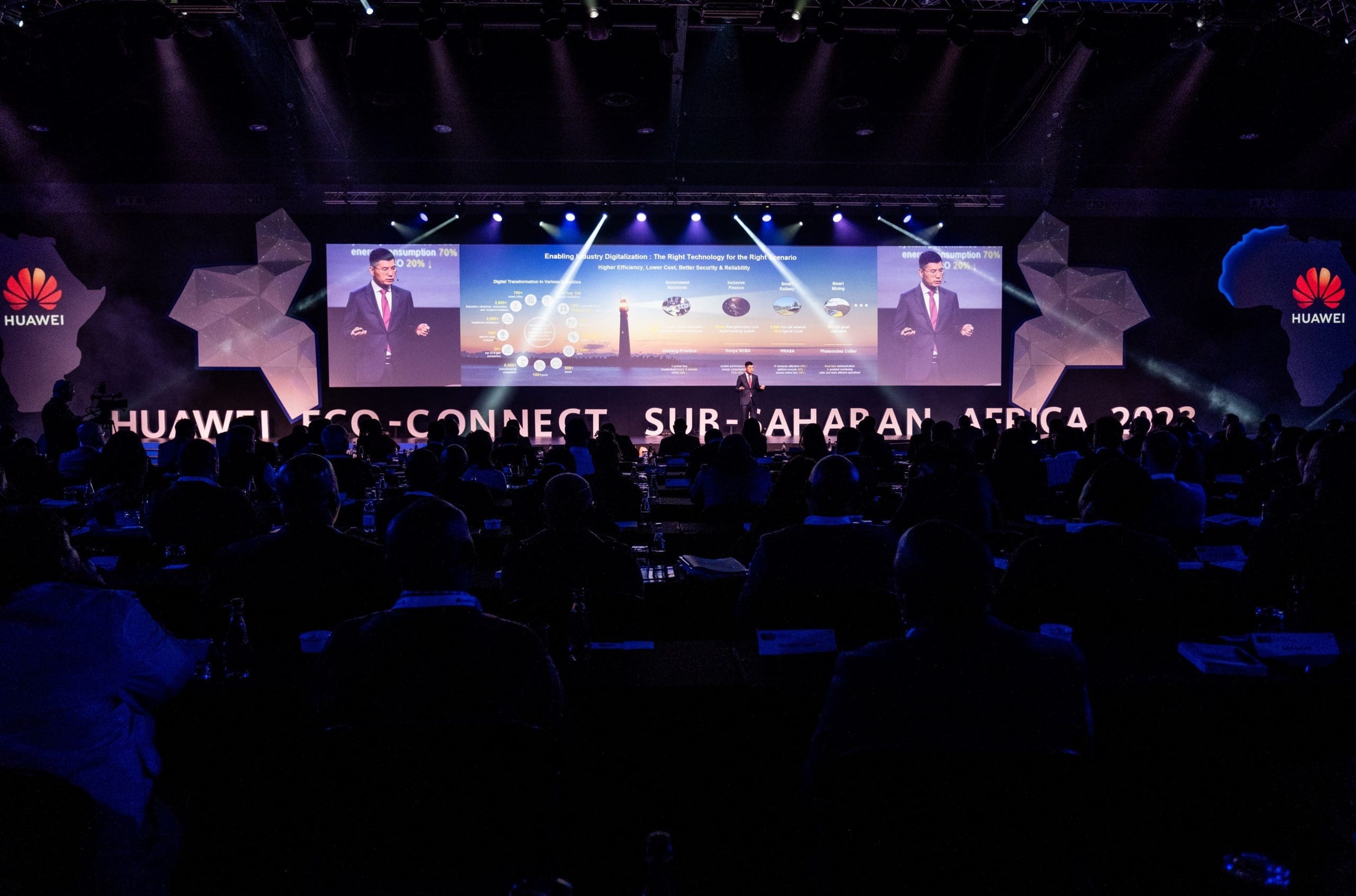

In his keynote, Leo Chen, President of Huawei Sub-Saharan Africa Region, spoke about how the wave of digitalisation offers the African continent the opportunity to potentially leapfrog it development. But, he said, there are challenges cannot be ignored.
These challenges include insufficient computing infrastructure and a lack of an easy way to obtain new technologies such as cloud and AI; gaps in network connectivity; power shortages; the need to rapidly decarbonise requirement; and a shortage of digital talent.
Addressing these challenges, Chen said, requires the kind of highly customisable solutions Huawei has brought to market and implemented with its partners.
“Huawei’s industry-leading technologies, products and solutions, such as 5G, all-flash data centre, HUAWEI CLOUD Stack, and Huawei smart string energy storage solution have been successfully applied in industries such as finance, transportation, mining, and renewable energy,” he said. “This has helped customers reduce costs and improve efficiency while enjoying enhanced security and reliability.”
Chen also spoke about how Huawei technologies are being used by a wide variety of industries globally. Its Pangu Weather AI model, for example, is being used to drive more accurate weather forecasting.
He said Huawei will continue to work to bring advanced technologies to Africa. He also underlined Huawei’s commitment to helping build of a robust digital talent ecosystem that will underpin the continent’s future development.
“Behind all our African success stories, you’ll find one or more partners playing an indispensable role,” Chen said.
He then stressed that fairness, transparency, win-win, and mutual growth are the principles of Huawei’s partner policies.
“Huawei will respect business boundaries, adhere to the strategy of ‘being integrated,’ creating values by working with partners to help customers solve problems, and ensure that partners who work more closely with customers will gain more benefit,” he said.
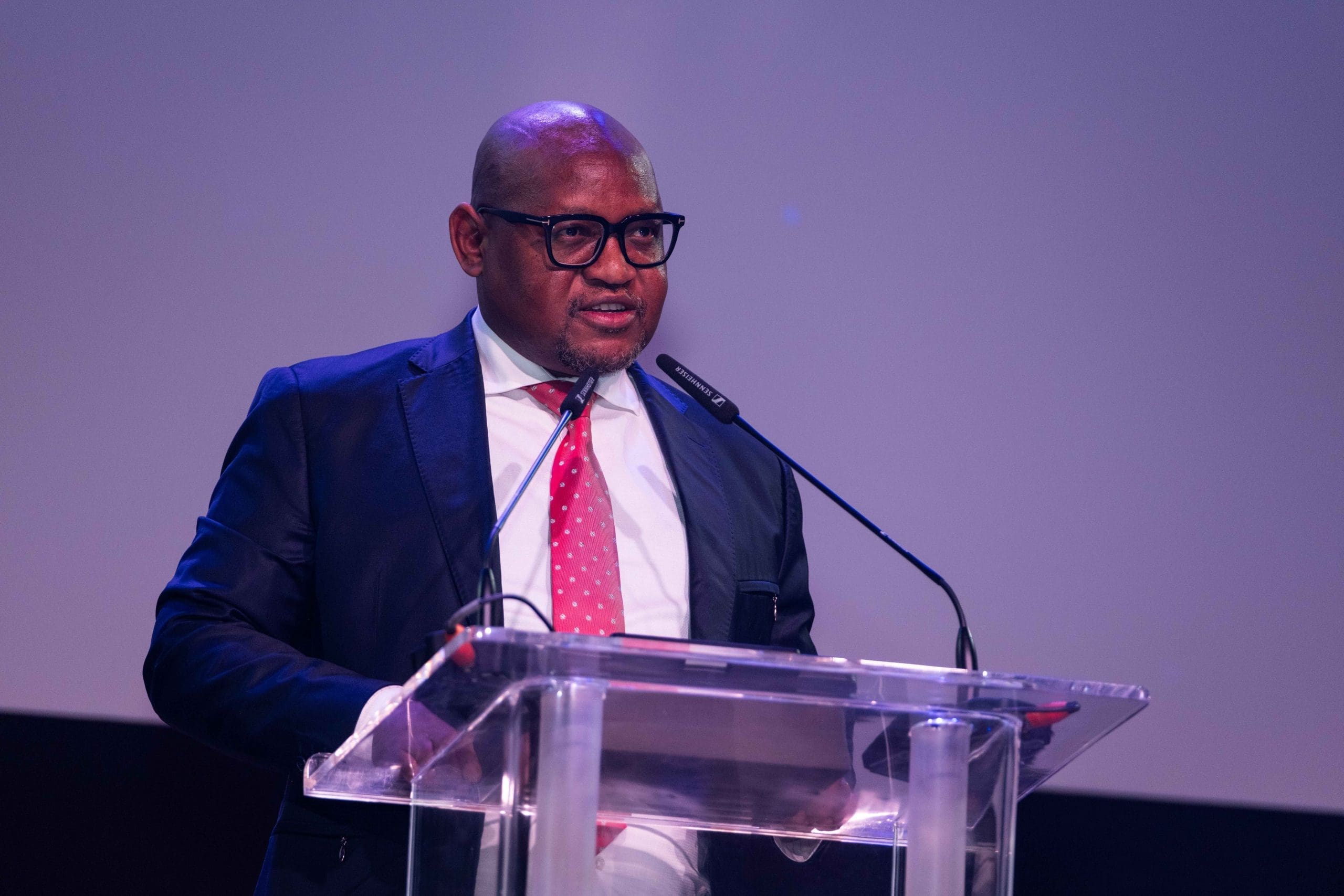

Philly Mapulane, South Africa’s Deputy Minister of Communications and Digital Technologies spoke about the challenges facing the continent in its adoption of digital technologies and its struggle to bridge the digital divide. But he said ICT would play a pivotal role in growing the South African and African economies, in which no one should be left behind.
“We see Huawei as part of our industry partners that we should work with to expand network coverage in rural and remote areas across South Africa with the main goal of closing and narrowing the digital divide by providing better and faster digital services,” he said.
Gauteng Premier Panyaza Lesufi, meanwhile outlined his vision for the province as a digital hub.
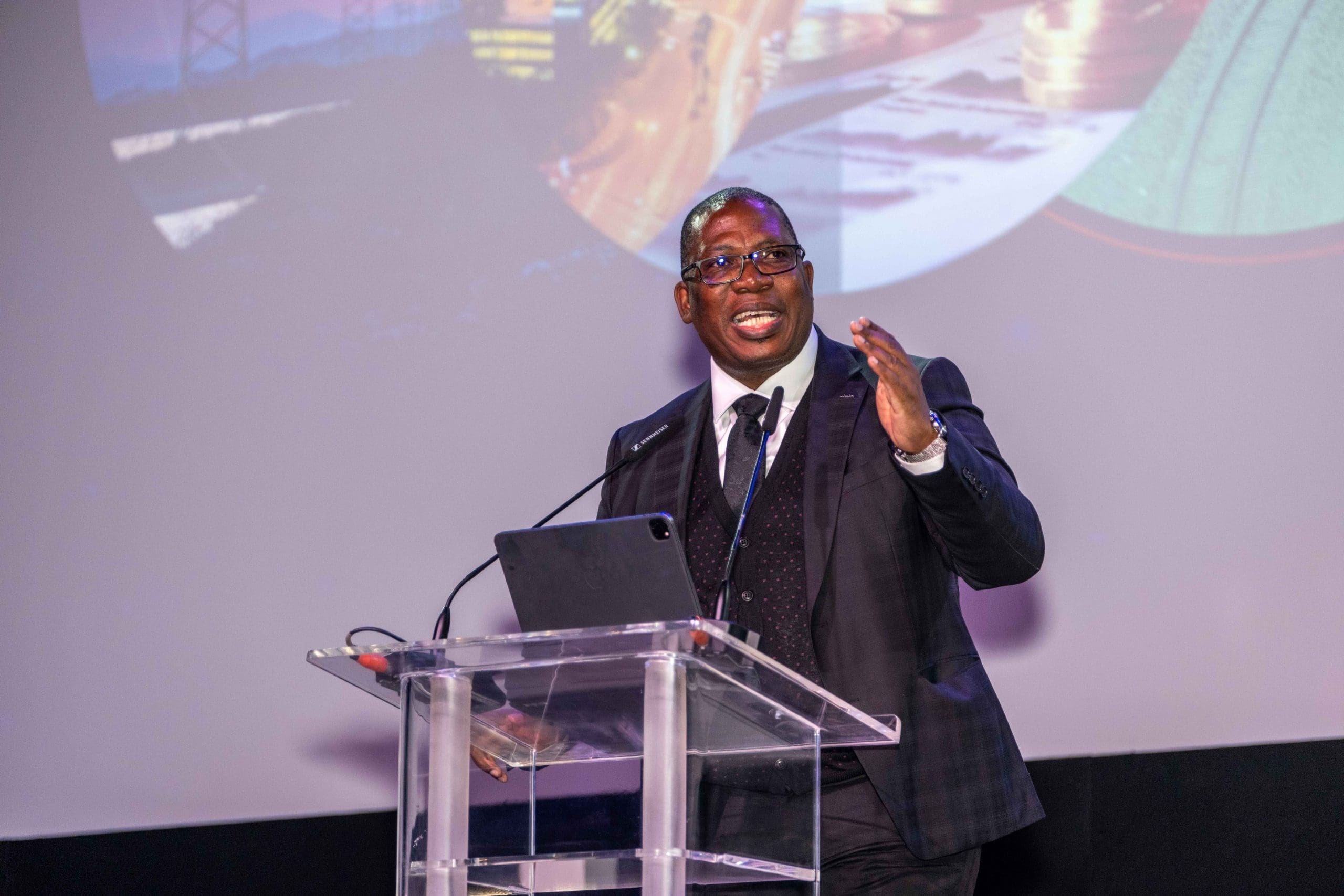

“I have come here to declare one thing and one thing only, we want Gauteng to be the digital hub of our country. We want to lay the foundation, provide the resources and everything that is needed for us to ensure that we migrate this beautiful province from the mining industry that established it to the new economic power that we will call the digital power,” he said. “This digital power must create jobs and opportunities and not leave anyone behind. And we are proud that we have a powerful organisation called Huawei that is walking with us, giving us the guidance and support we need.”
Also speaking at the event Lebogang Maile, Gauteng MEC for Human Settlements and Infrastructure Development, thanked the leadership of Huawei for presenting the Eco Connect event.
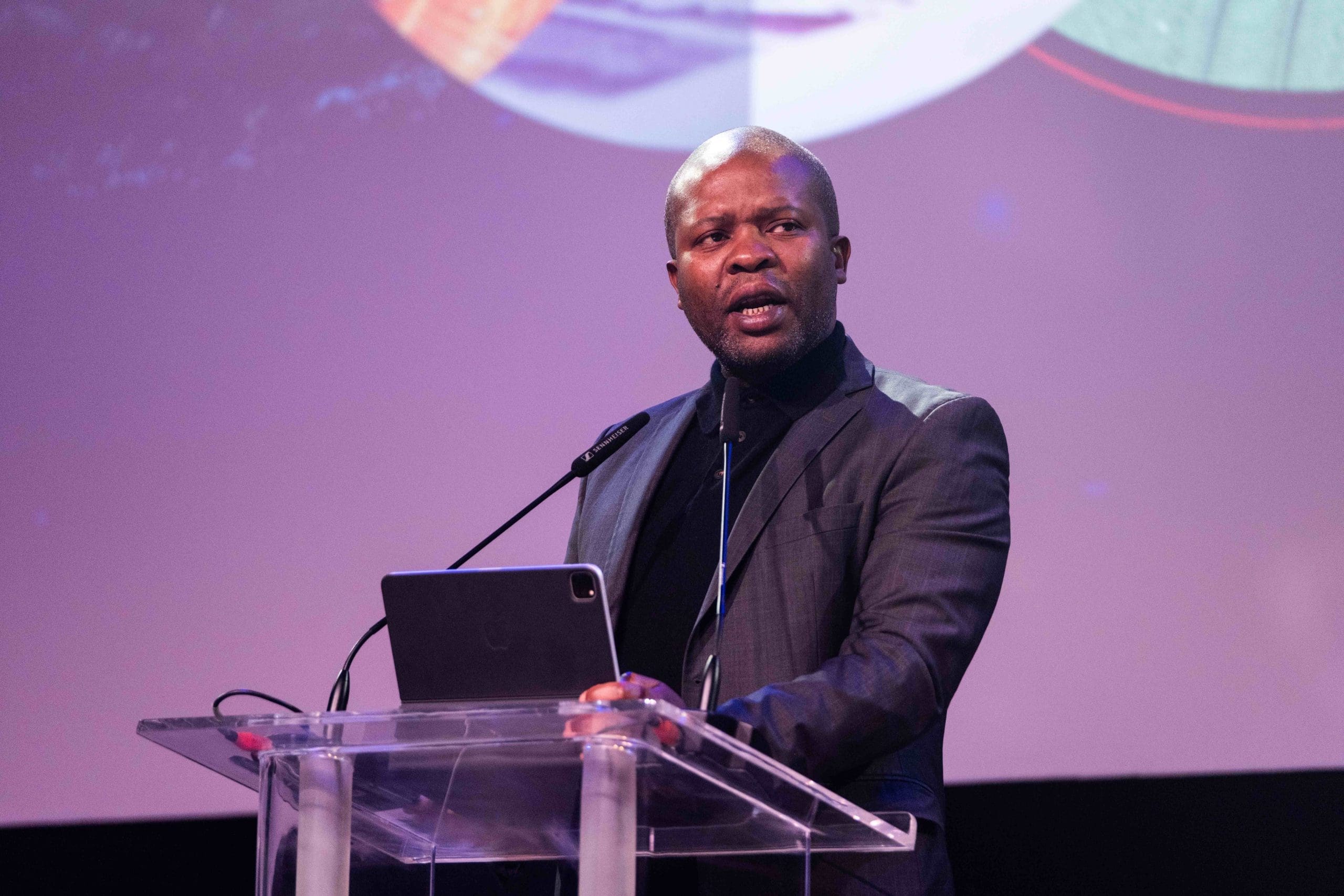

“Your theme of ‘Leading Digital for New Value Together’ resonates with the work we are doing in Gauteng as we work towards the digitisation of the province,” she said. “Through our Grow Gauteng Together 2030 (TTG) programme, the province is driving the adoption of digital technologies to improve the lives and livelihoods of its residents.”
In addition to the plenary session in which these points were made, Eco-Connect Sub-Saharan Africa 2023 included eight sub-forums in the fields of digital government, IP networks, data storage, transportation, cloud, and digital energy. Huawei’s range of products, solutions, and best practices for industry digital transformation were on display in the 2500 square meters exhibition hall which attracted large numbers of visitors.
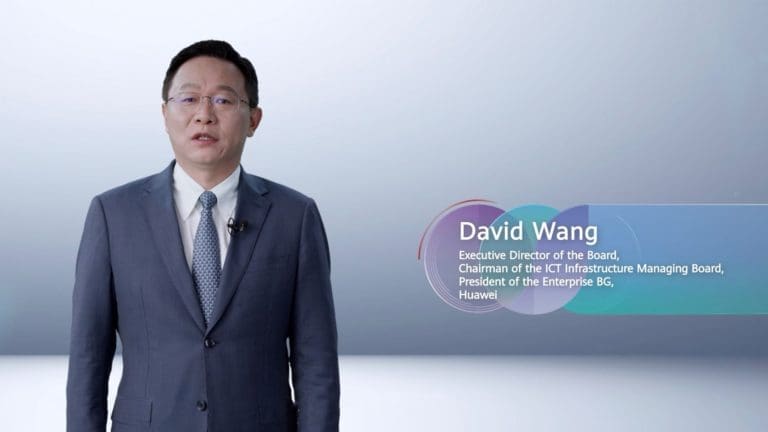
1 Comment
Pingback: Building A Prosperous Partner Ecosystem To Promote Digital Transformation Of African Industries - News Online | Concnews